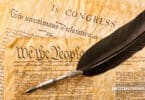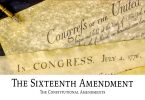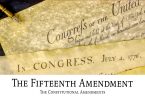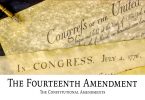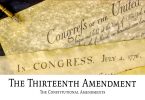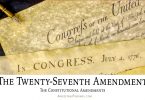This amendment gives all US citizens age 18 and above the right to vote. It also prohibits the states and the federal government from discriminating against anyone age 18 and above when it comes to the right to vote. Denying this right to anyone who has attained the stated age is prohibited, and Congress has the power to make laws to ensure the states follow this new Constitutional rule.
Congress proposed this amendment in March of 1971, and it was approved by the requisite ¾ of states and adopted to the US Constitution on July 1, 1971. It was one of the easiest Constitutional amendments to be approved by the requisite number of states, because it had a lot of support across the nation, and had for decades at the time the amendment was finally approved by Congress and sent to the states for their approval.
What Does it Say?
“Section 1. The right of citizens of the United States, who are eighteen years of age or older, to vote shall not be denied or abridged by the United States or by any State on account of age.
Section 2. The Congress shall have power to enforce this article by appropriate legislation.”
What Does it Mean?
There had been considerable support in Congress and among the American public for lowering the legal federal voting age from 21 to 18 for some time, beginning in the 1940s. In fact, support for lowering the voting age to eighteen began during WWII, when US President Franklin D. Roosevelt lowered the age of the military draft to eighteen. “Old enough to fight, old enough to vote,” became a common saying among those who supported lowering the voting age. Yet, the measure wasn’t able to get enough support in Congress to create an amendment to send to the states, at first.
The clamor for lowering the voting age to eighteen grew again in the 1960s when youths were being drafted into the Vietnam War, without being old enough to have any say at the ballot as to whether there was a war in Vietnam at all, and whether they should be involuntarily sent to fight in it. The unfairness of this situation was evident to most people.
Congress tried to extend the federal Voting Rights Act in 1970 to allow those aged 18 to 21 to vote, but the US Supreme Court ruled that while Congress could lower the legal voting age for federal elections, they had no authority to do so for state and local elections. To get around the confusion this would undoubtedly have caused regarding who could vote in which elections, not to mention the costs involved in establishing and maintaining separate voter rolls for federal and state/local elections, the Twenty-Sixth Amendment was proposed, which would make the lower voting age a nationwide law that applied to all elections.
Because this move had been supported by most of the public for some time, the amendment was easily ratified by the states and adopted to the Constitution.

